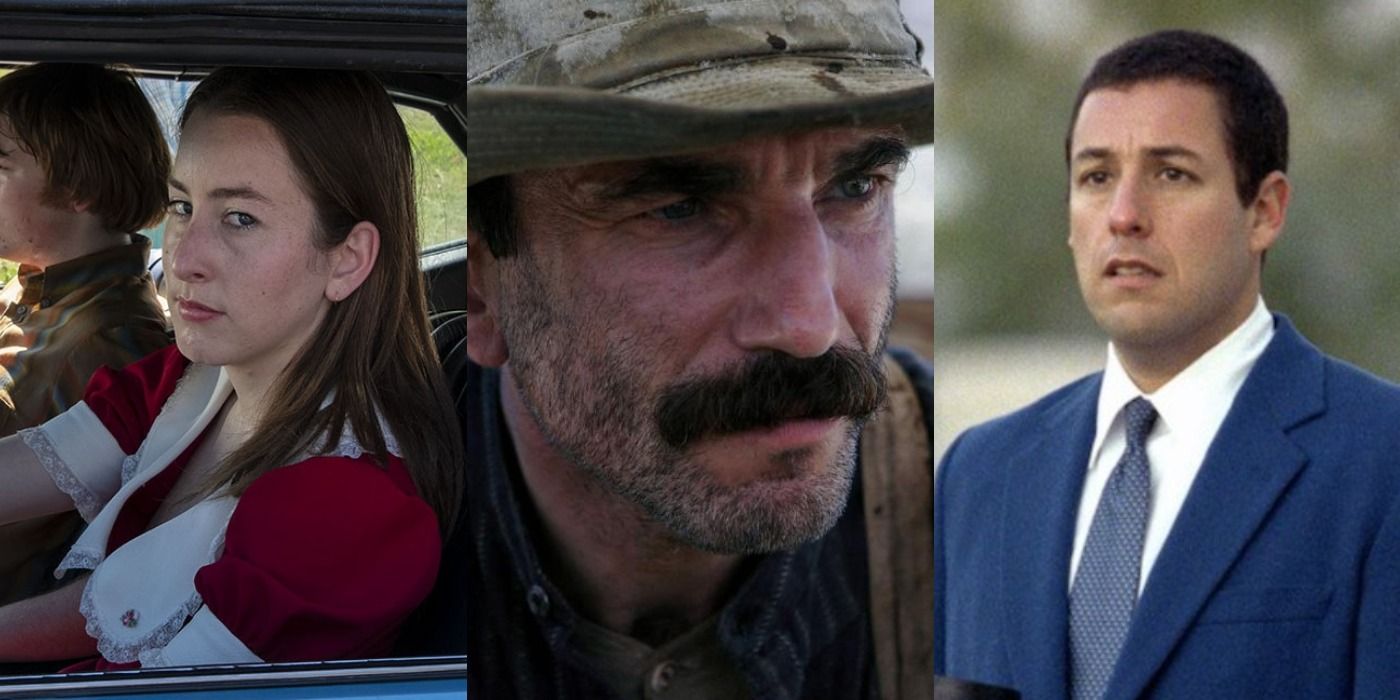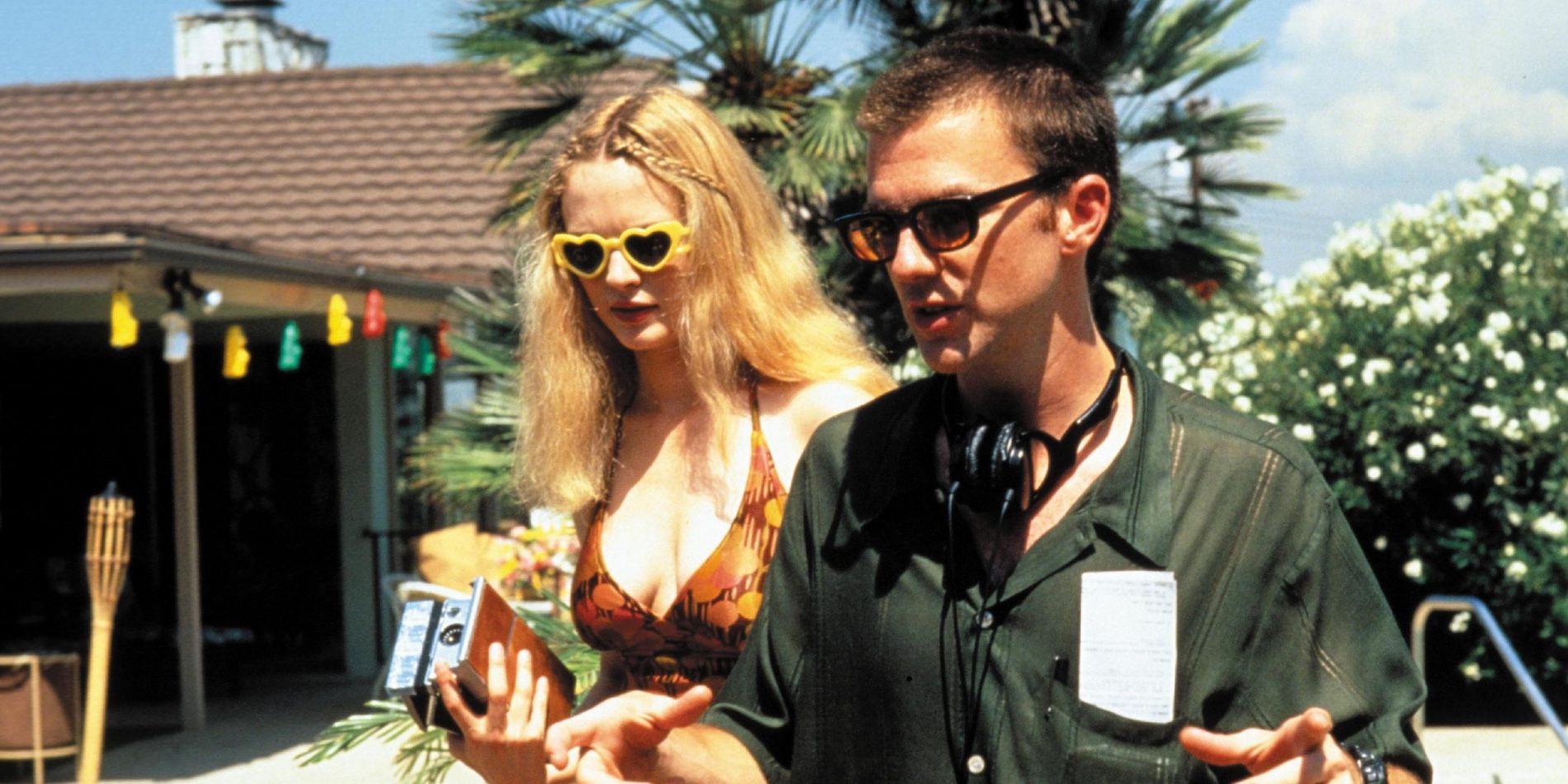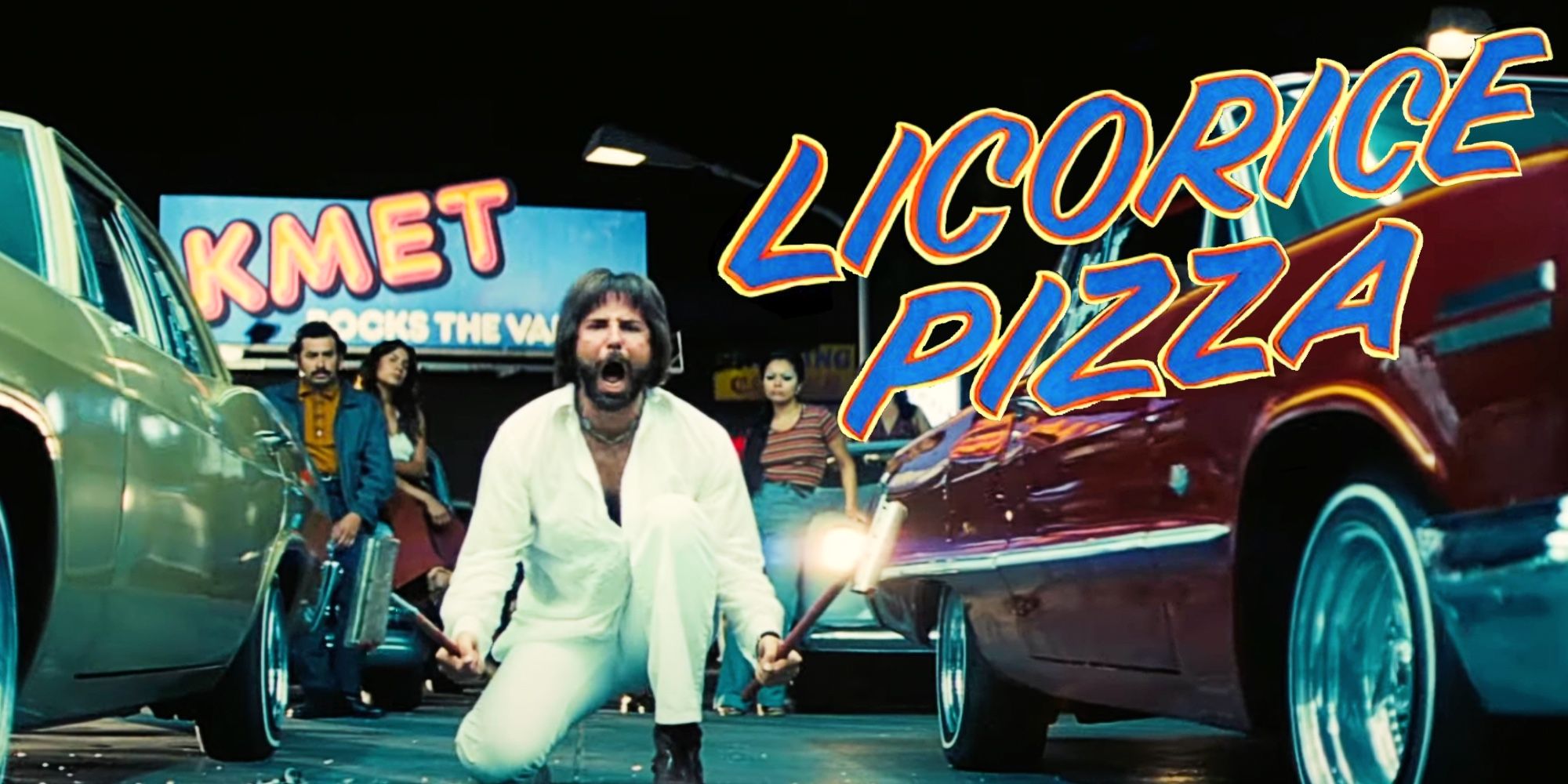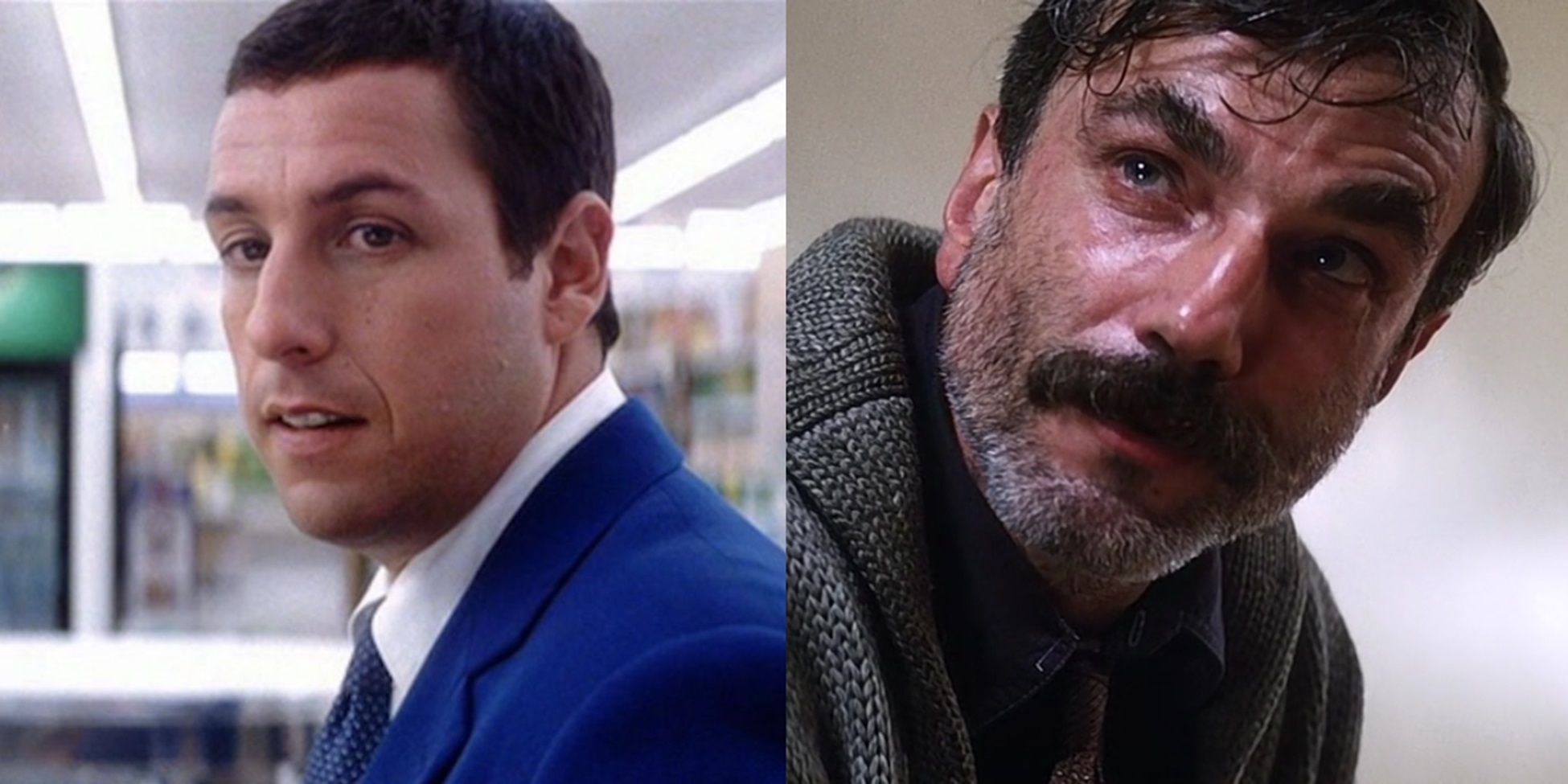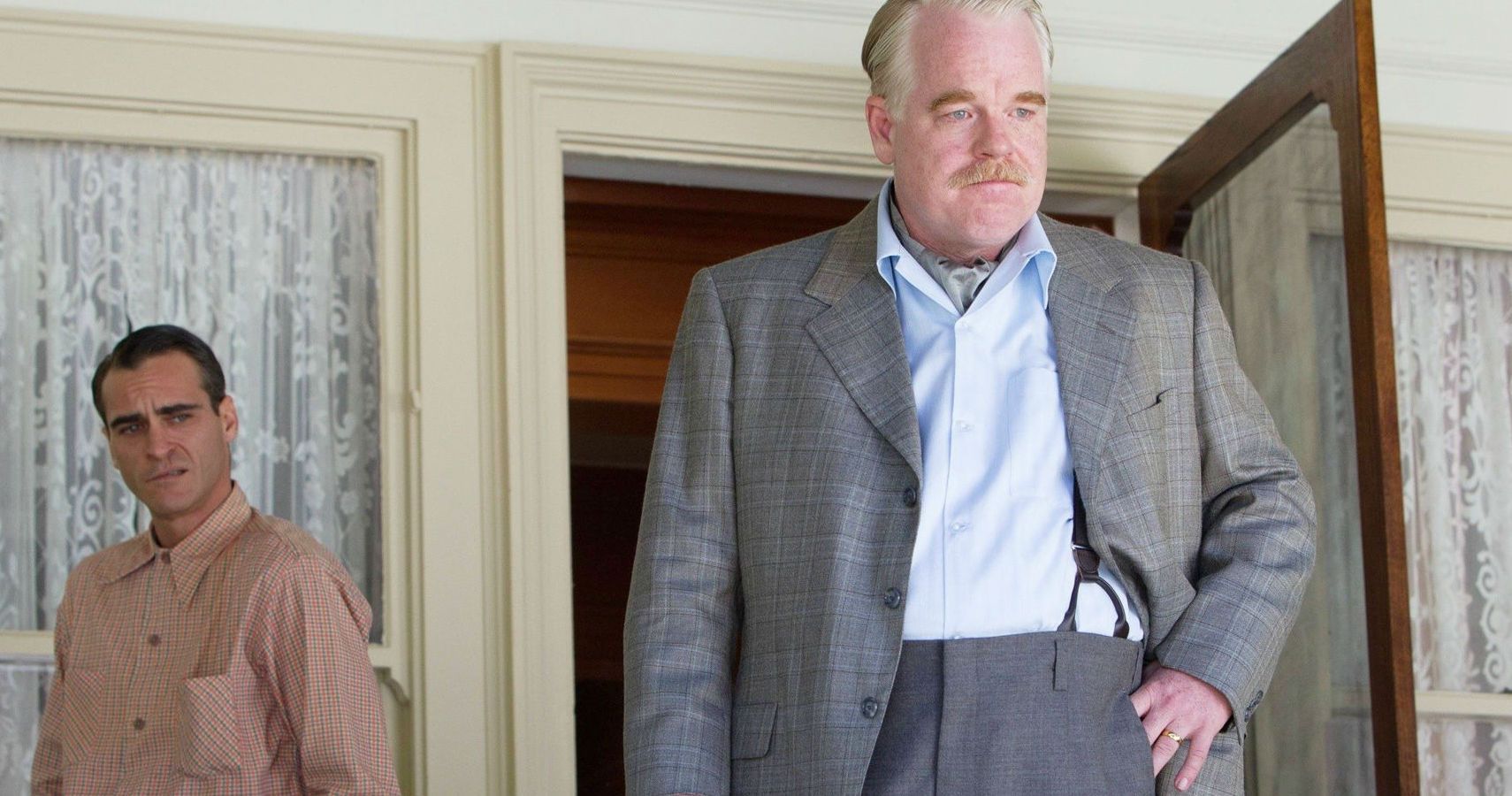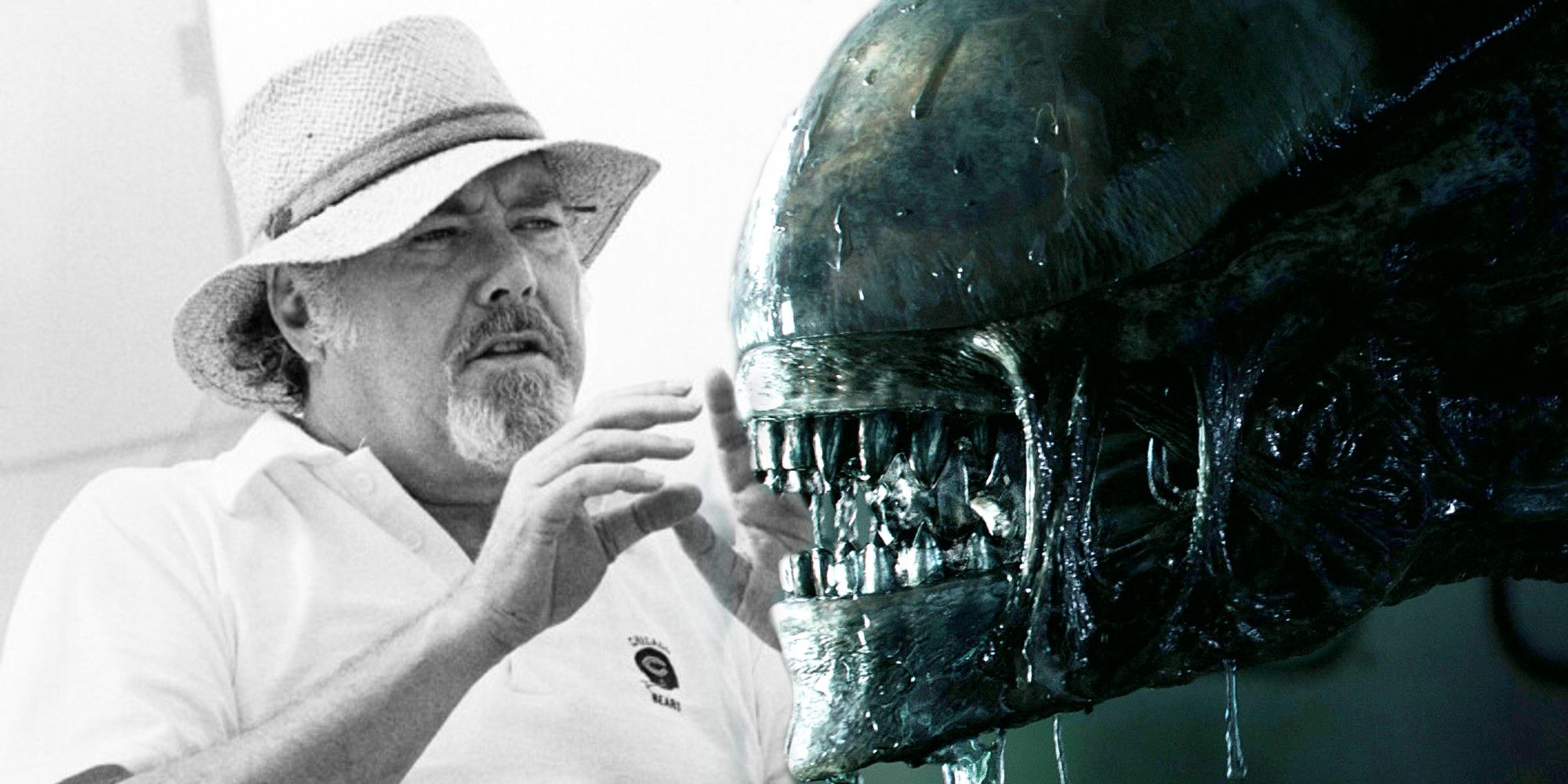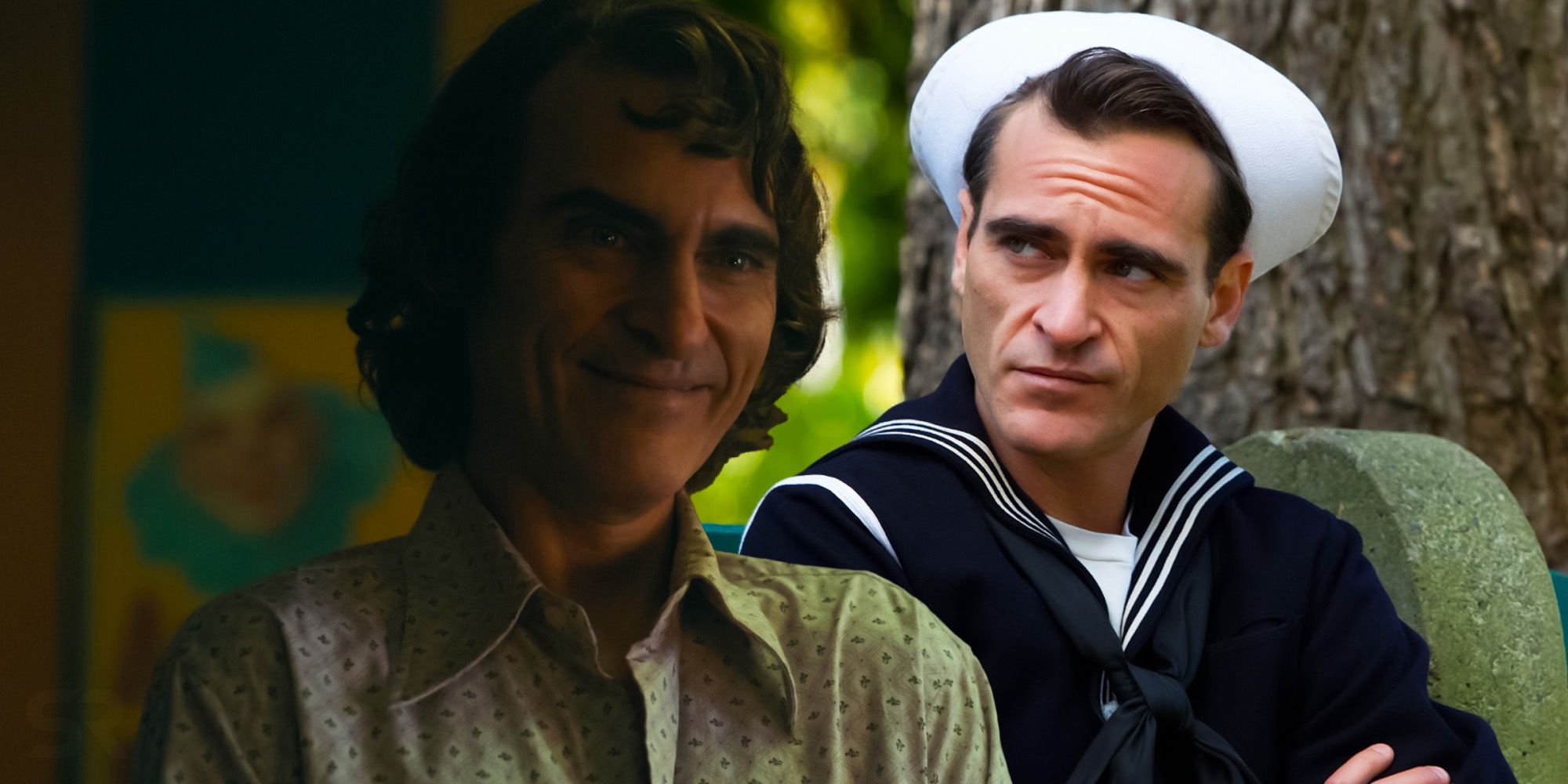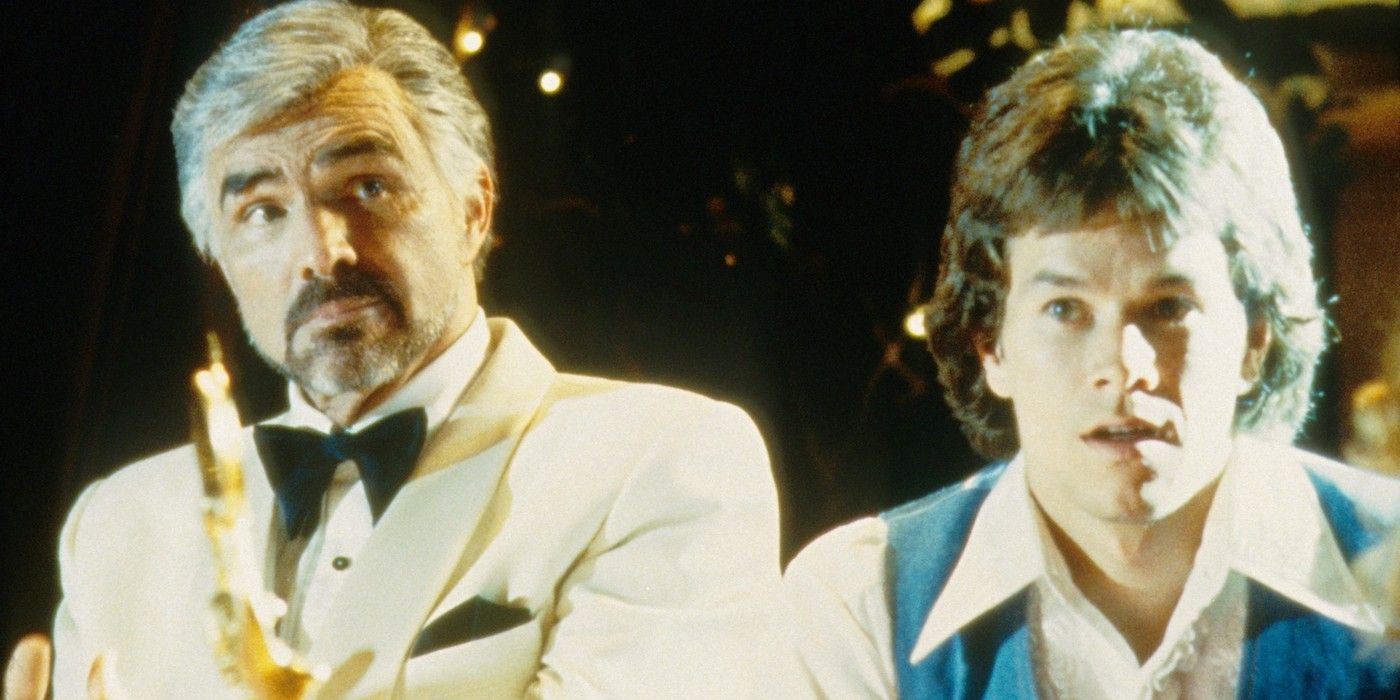Although writer/director Paul Thomas Anderson fails to draw audiences to the extent of peers such as Quentin Tarantino and Christopher Nolan, his filmography is highly respected by the majority of critics and is relentlessly analyzed by cinephiles. Many of his works have garnered increasing acclaim in the years following their release dates.
Chief amongst them is There Will Be Blood, which did not receive the Academy Award for Best Picture, and was later named the greatest film of the 21st century (via The New York Times). This distinguishes him as a timeless artist in a medium that often rewards disposability. Film aficionados of Reddit have identified prominent aspects of Anderson's work that justify the director's golden reputation.
The Cohesiveness Of His Writing
A certifiable auteur, Anderson directs his original screenplays rather than serving as a director-for-hire. His inventiveness as a writer differentiates him from filmmakers who overly rely on visuals to communicate their respective messages, and it is evident by his respect for this aspect of the process that he regards film as a medium parallel to literature.
oamh42 emphasizes the distinctiveness of Anderson's writing style, saying, "His scripts have an incredibly scrappy quality that I'm not sure that he'd be able to get away with if he wasn't directing, but the character work, the brilliant dialogue, and the story are all there."
The Rewatch Value Of His Films
The most effective films offer significant artistic substance rather than simply dispensing information, allowing audiences to enjoy such works repeatedly despite knowing the outcome of a given plot. Anderson excels at this practice, as evidenced by the continued relevance of his 1990s output such as Boogie Nights and Magnolia.
AlexBarron suggests that such rewatch value is owed to the freedom that the director allots to his actors during their performances, saying that it “makes his movies wonderful to rewatch, as they’re always a sort of puzzle to unravel.”
The Amount Of Subject Matter Included In A Single Film
Anderson is acclaimed, in part, for his willingness to grapple with multiple sweeping and esoteric topics in a single work. There Will Be Blood (which is one of the best Paul Dano movies in addition to being one of Anderson's best) provides insight on scores of social and emotional topics in addition to its obvious critique of unfettered capitalism, a feat that any filmmaker who was short of brilliant would be unable to execute.
gregm91606 believes that the writer/director employed a similarly broad scope with Boogie Nights, writing that the film "is actually incredibly efficient given the ground it chooses to cover — the transition of an entire industry, and the destruction and re-coming together of a 'family.'"
His Reinvention
One could argue that elite artist can only maintain their superior performance by radically adjusting their style during the peak of their career. Many have identified such a shift in Anderson's filmmaking, noticing a greater focus on the verbal description in his earlier work and a more prominent embrace of subtlety in his more recent films.
geterklyed regards both styles as exceptional, saying, "Even if we separate his career into two halves — the first where he was a writer of talkies, the second where he's a less-is-more type of filmmaker —they are both fantastic."
His Penchant For The Unexpected
While many filmmakers maintain their careers by adhering to a particular style or continuing to grapple with a specific list of themes, Anderson is known to release output that radically diverges from his previous work. Magnolia, an anthology piece with daunting and occasionally biblical undertones, and the light and relatively wholesome Licorice Pizza are distinct enough from one another that casual audience members unfamiliar with Anderson by name would likely not expect the two films to have been written and directed by the the the same artist.
snarkyturtle is highly appreciative of this tendency to pave new and unexpected paths, saying that Anderson “definitely has a knack for subverting audience’s (sic) expectations. Like Phantom Thread was riding off the hype of There Will Be Blood but PTA wanted to take Daniel Day Lewis and portray him as a fancy English dude versus a gritty, conniving businessman, just because the audience was expecting the Daniel Playview (sic)/Bill The Butcher type of character.”
His Gorgeous Visuals
In addition to the crisp dialogue that anchors each of his films, Anderson expends significant effort polishing the visuals of each shot included in a given work’s final edit. This dedication is particularly evident in The Master, a period piece set in the aftermath of World War II that features clothing, technology, and architecture-specific to the 1950s.
acharismaticjeweller was among the scores of viewers to praise this film’s striking beauty, writing that “there’s something so visually striking about this movie. Some of the visuals and profile shots of the characters have imprinted themselves on my brain.”
His Complex Portrayal Of Romance
A sizable share of art covers the nuances of romantic love due to the near-universality of the experience, but such works often depict polished and two-dimensional relationships that bear little resemblance to those of the general public. Anderson challenges this tradition of failure by writing complex and strikingly flawed partnerships, most notably in the films Punch-Drunk Love and Phantom Thread.
A Redditor who has since deleted their account took note of the desire for control evident in the primary relationship of the latter film (involving one of Paul Thomas Anderson's best female characters), writing, “In Alma, Reynolds has met his match, and she is drawn to him because she of this. And ultimately she wins — he surrenders to her. She has control at the end of the story.”
The Clear Influence Of Other Respected Filmmakers
Anderson, like any proper filmmaker, follows cinema obsessively, drawing readily observable inspiration from many of the screenwriters and directors who preceded him (one can better grasp the impact of such artists by watching the movies that influenced Paul Thomas Anderson.) Several of the most iconic films in the history of the medium were released during his upbringing in the 1970s and 1980s, a plausible motivator for his decision to embark on a career in Hollywood.
A Redditor who has since deleted their account identified Robert Altman as a notable influence on Anderson whose techniques and themes can be identified in the latter's work, saying that the Punch-Drunk Love director is "a huge Robert Altman fan...Altman has gone on record many times saying that his films don't have an ending because life doesn't work like that." Anderson similarly avoids tidy conclusions in his projects.
His Interest In The Past's Effect On The Present
Certain students of Anderson's output have noticed that the writer/director frequently references the looming power of an individual's past in his works. Paul Thomas Anderson's protagonists who suffer from the pain associated with this retrospection include Dirk Diggler of Boogie Nights (who is haunted by his fraught adolescent relationship with his mother) and Freddie Quell, one of the two primary characters in The Master (who appears to remain deeply affected by his service in World War II).
lilbunited additionally observed this theme in Anderson's debut film, Hard Eight, noting that "the past is the main crux of the film, the reason our protagonist Sydney does what he does in the first half of it, the thing he tries to escape the most."
His Focus On Interpersonal Relationships
Anderson appears to be preoccupied with the importance of social bonds, as evidenced by the primary non-romantic relationships exhibited in films such as Boogie Nights, There Will Be Blood, and The Master.
His work suggests that such connections are often tumultuous and are not guaranteed to be permanent, but that they are generally preferable to the psychic pain of isolation regardless. jzakko insightfully expanded upon this observation by noting that “his films relate to loneliness as the human condition, and relationships as the only salvation."

